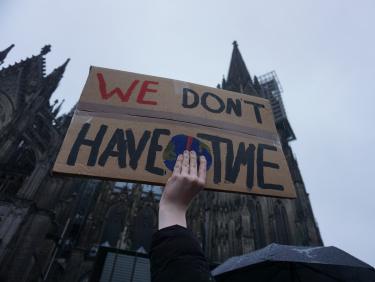ABOUT US
The Käte Hamburger Centre for Apocalyptic and Post-Apocalyptic Studies (CAPAS) is an institute of advanced studies at Heidelberg University that has been bringing together leading scholars from around the world since 2021. Funded by the German Federal Ministry for Research, Technology and Space (BMFTR), the Centre annually offers up to 15 Fellowships for up to twelve months, providing the opportunity to conduct research independently and free from everyday academic obligations in a cooperative, interdisciplinary environment. Starting from the premise that the concept of Apocalypse offers a unique and productive way of approaching present and past experiences of world-ending and world-making, the Centre's research addresses how catastrophes and end-time scenarios affect societies, individuals, and environments. CAPAS positions itself as a platform for dialogue between the humanities, social sciences, and natural sciences, with the long-term goal of establishing (Post-)Apocalyptic Studies as an internationally recognized field of research.







